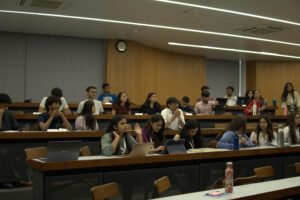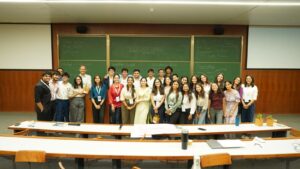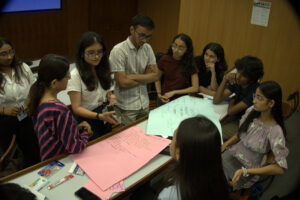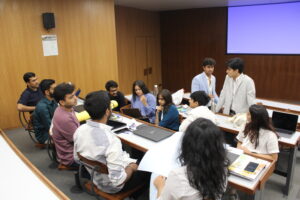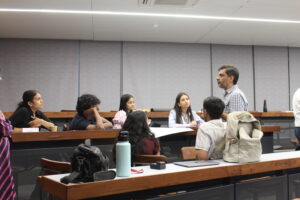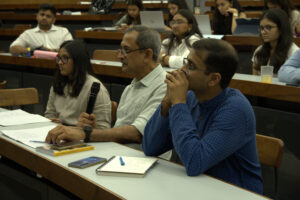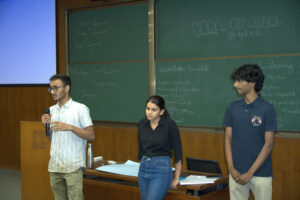Organized by
Ahmedabad University, Gujarat in collaboration with TIDE Foundation India (Capacity and Training Partner)
Themes: Urban Health, Heritage Preservation and Urban Transportation
Experts and mentors:
- Kaumudi Joshipura, Susmita and Subroto Bagchi Professor of Public Health; Dean, Bagchi School of Public Health, ScD (Harvard University)
- Professor Darshini Mahadevia, a renowned scholar in urban equity, climate adaptation, and sustainable development, PhD (Jawaharlal Nehru University)
- Vaibhav Kadia, Assistant Professor, Associate Dean (Student Engagement), PhD (Ganpat University)
Jury:
- Amresh Kumar, Dean of Students and Students’ Success, Ahmedabad University
- Dr Jwalin Patel, Co-founder and President TIDE Foundation
- Kalyani Bhow, Student Development Executive at Office of the Dean of Students
Participation Details: 60 student participants from Ahmedabad University
Core-organising committee: Adi Anthony, Zeus Khambata, & Khushi Shah
Action plans proposed
- Urban Health committee: Students identified that slum communities often lack access to basic health awareness, especially concerning mental well-being. As a solution, students proposed visiting slum areas to spread awareness about physical and mental health through engaging methods like storytelling videos and nukkad nataks (street plays). By using relatable, community-based performances and visual content, the initiative aims to break health related stigmas, share essential hygiene and wellness practices, and promote mental well-being in underserved communities.
- Heritage preservation committee: Students shared their observations of many heritage buildings in Gujarat that remained neglected, leading to their gradual decay and loss of cultural value. To address this, they suggested converting old heritage buildings into cultural cafes and community spaces. These sites could host networking sessions, storytelling evenings, and cultural events, turning historical structures into lively, engaging hubs.
- Urban transportation committee: Students raised concerns about the lack of safety in public transportation, especially in overcrowded buses where incidents of harassment and assault are more likely. As a solution, they proposed the installation of panic buttons on every seat to allow immediate alerts in case of emergencies. Additionally, they emphasized the need to spread awareness about safety tools like the Nirbhaya app, which enables quick reporting and access to help.




